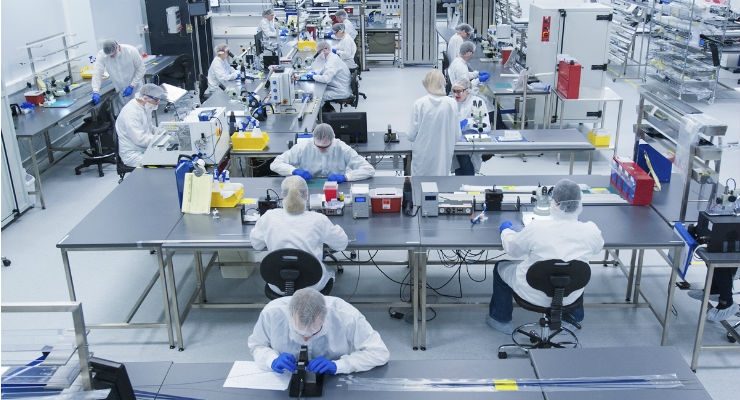The medical device industry has witnessed tremendous growth over the past few decades as technological advancements have led to the development of innovative products that save and improve lives. With the complexities involved in medical device design, development and manufacturing, contract manufacturing has emerged as a core business strategy for many original equipment manufacturers (OEMs). Let’s take a deep dive into the trends shaping the medical device contract manufacturing industry.
Outsourcing Core Activities
Faced with rising R&D costs, stringent regulatory requirements and increasing time to market pressures, more medical device OEMs are outsourcing non-core activities like product assembly, packaging and sterilization. This allows them to focus internal resources on areas that provide strategic advantage like product design and clinical research. Contract manufacturers with specialized facilities and expertise help OEMs access critical manufacturing capacities in a capital efficient manner. Advanced manufacturing capabilities for technologies like injection molding, extrusion, laser cutting and sterilization are now commonly available through outsourcing partners.
Demand for Full-service Providers
Gone are the days when contract manufacturers simply performed individual manufacturing operations. Today’s customer demands a full suite of vertically integrated services from product development and design validation to finished device assembly, packaging, sterilization and global distribution. Leading contract manufacturers are making large investments in areas like prototyping, testing laboratories, clean room facilities and skills like project management, quality systems and regulatory expertise. They can effectively act as an extension of the OEM’s operations. This streamlines processes for OEMs and ensures service consistency globally.
Emerging Markets Driving Growth
Developing economies in Asia, Latin America and Eastern Europe are witnessing burgeoning demand for advanced medical technologies to treat their growing population. This market potential has spurred contract manufacturers to establish facilities closer to these emerging healthcare hubs through acquisitions and greenfield projects. The abundant talent pool and lower costs have attracted significant foreign investments. Countries like India, China, Mexico, Poland are fast becoming preferred manufacturing destinations and account for a large share of the outsourced production volume today. Their growing contract manufacturing capabilities are helping accelerate technology access in these regions.
Focus on Specialized Therapeutic Segments
The medical device industry encompasses diverse therapy areas ranging from orthopedic implants to cardiovascular stents to diagnostic kits. Contract manufacturers today offer tailored expertise and specialized facilities for different segments. For instance, the large volume, lower margin orthopedic implants market has attracted numerous Asian manufacturers while complex cardiovascular devices demand state of the art clean room infrastructure more common among American and European firms. Niche players have emerged that exclusively focus on areas like ophthalmology, neurovascular and minimally invasive surgeries. This depth of therapeutic specialization ensures quality and compliance to the unique demands of distinct product categories.
Stringent Quality and Compliance Standards
Medical devices are heavily regulated with product approvals requiring demonstration of safety, efficacy and quality across multiple jurisdictions. To deliver on their customers’ expectations, contract manufacturers must comply with international quality mandates like ISO 13485, US FDA’s Quality System Regulation and country specific medical device directives. Many obtain voluntary certifications like ISO 9001 for quality management as well. Regular audits, traceability of devices to their raw material source and control over the entire supply chain are business requirements today. Automation and connectivity through Industry 4.0 technologies further strengthen quality assurance and compliance systems. This regulatory focus ensures patient safety.
Growing Outsourcing of New Product Segments
Initially limited to commodity items, today contract manufacturers are able to support clinical trials, handle complex prototypes and even manufacture entire new products from the design stage itself. They are deeply involved in product development through services like rapid prototyping, design validation and process planning. This is opening up opportunities for outsourcing even the initial quantities of innovative device segments undergoing regulatory approvals. The combined advantages of costs, expertise networks and flexible infrastructure allow contract manufacturers to confidently take on such opportunities previously considered the core driver of OEM business models.
Partnerships beyond Purely transactional Relationships
Mature contract manufacturing players are transitioning from being mere order fulfillers to long term business partners. Joint product development collaborations, shared investments in automation technologies and common quality systems aim to achieve deeper integration between OEM and supplier operations. Early supplier involvement throughout the product lifecycle facilitates better alignment of contracting needs with the manufacturer’s expertise and capacities. Such “Co-makership” ensures the delivery of more customized value to the customer’s specific requirements. It also builds robust financial models supporting sustained OEM-CMO relationships especially critical for newer medtech startups.
The medical device industry’s continued innovations and demand from emerging markets is set to fuel further outsourcing growth in the coming years. Manufacturers that can deliver specialized skills, global scale, advanced technologies and regulatory compliance will be best placed to tap into this opportunity. Medical device contract manufacturing will remain core to driving healthcare access worldwide.
In conclusion, the trends of outsourcing core activities, demand for full service offerings, emerging market expansion, specialization across therapy segments, quality and regulatory needs as well as opportunities in new product segments signal an exciting growth phase ahead for medical device contract manufacturers. Partnerships going beyond simple transactions will also strengthen player competitiveness. Sustained innovations championed through collaborative OEM-CMO relationships promise to deliver advanced technologies addressing significant unmet clinical needs globally.




